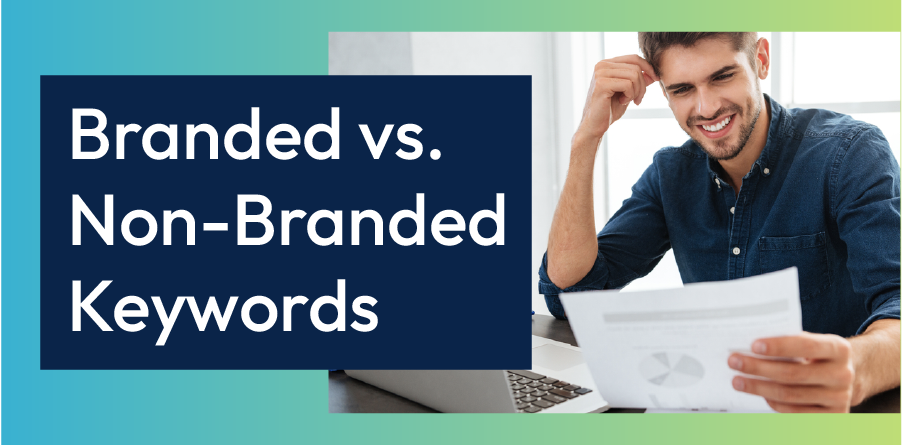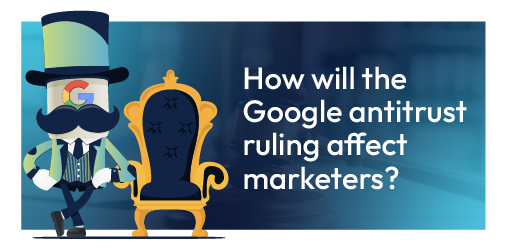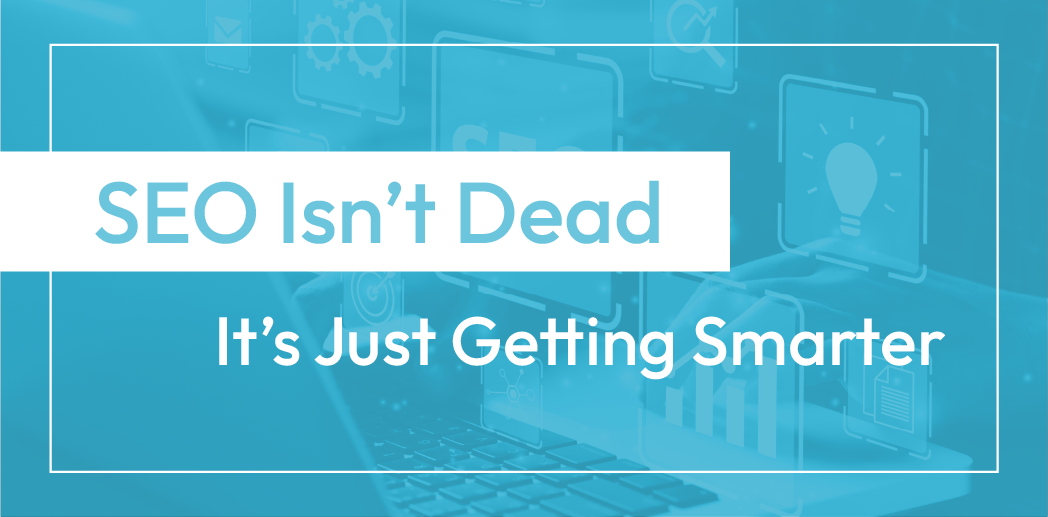Branded vs Non-Branded Keywords

Keyword research is a core component of SEO. Properly incorporating relevant keywords into your website pages and blog posts helps search engines like Google deliver your copy to the right audience.
Understanding branded vs non-branded keywords is an important first step to performing excellent keyword research, and this blog is a great place to start. In the following content, we’ll discuss the differences between these two keyword categories, as well as how to use both to your advantage.
What Are Branded Keywords?
Branded keywords are search terms that include your company name or a version of your company name. For my company, branded keywords include:
- RivalMind
- RivalMind LLC
- RivalMind digital marketing services
- RivalMind SEO
And any other search term with “RivalMind” in the phrase. Even search terms with our company name misspelled, “like Rivalmind” or “Rival Minds,” are considered branded keywords.
For “Java Jill,” an imaginary coffee shop, branded keywords might include:
- Java Jill
- Java Jill coffee
- How much does coffee cost at Java Jill?
- Java Jill coffee flavors
We should clarify a possible point of confusion here. Branded keywords are not search terms that mention brands you carry. For example, if you’re a reseller for Nike shoes, the search term “Nike shoes” is not considered a branded keyword. Why? The search intent for “Nike shoes” is not specific to your company – it could encompass any Nike shoes seller. If you were Nike, however, this would be considered a branded keyword.
Additionally, a user searching for your business using branded keywords is typically familiar with your brand, product, or service.
What Are Non-Branded Keywords?
Non-branded keywords are relevant to your brand, products, or services but don’t include your company name. For most companies, the opportunity for non-branded keywords is virtually endless, because of the variety of phrases your target audience may use to find products or services like yours.
Using RivalMind as an example again, non-branded keyword phrases relevant to our industry include “digital marketing services,” “SEO company,” and “social media marketing tips.”
How Do Branded & Non-Branded Keywords Fit Into Your Strategy?
Both branded and non-branded keywords are important for an effective SEO and PPC strategy, because both target users at different stages in the sales process.
Consider these variables.
Visibility
In general, non-branded keywords have greater search visibility than branded keywords. Thus, they should be targeted for brand awareness campaigns, gaining visibility, and driving organic visitors to your website.
Non-branded keywords can be utilized to target every step of the sales funnel, from awareness to conversion.

Competition & cost
In terms of competition, non-branded keywords are usually more competitive – and costly for pay-per-click (PPC) campaigns – because they are not specific to your brand. Many companies are attempting to rank for these keywords.
Competitors may bid on your branded search terms in an attempt to outrank you, but this is not as common. Because this is less common, though, branded keywords tend to be more affordable for marketers than non-branded keywords, because fewer companies are bidding on them.
Which keywords offer the best conversion value?
Most marketers would agree that the ultimate goal of all search campaigns is conversion. So, which category of keyword is best for this goal? The answer to this question is important but nuanced.
In general, campaigns targeting branded keywords have higher conversion rates, because internet users searching for branded keywords are typically further down the sales tunnel. These users are already familiar with your brand, products, or services and are poised to convert. Non-branded keywords are important for initiating first touchpoints with your brand. Thus, both keyword varieties are important for all stages of the sales funnel.
Should you focus your efforts on PPC or SEO?
Ideally, both! At first glance, PPC looks like the better route, because you can earn leads faster. However, as soon as you stop paying for your campaign, the leads stop. Though SEO requires more time and effort to initiate and maintain, great organic rankings continue to produce traffic and conversions for no cost.
Tips For Using Branded & Non-Branded Keywords

First, rank well organically for your branded keywords. Branded keywords are low-hanging fruit for your company, and ranking well organically for your company name is important. Start here during keyword research and website optimization.
Next, pour the remainder of your SEO efforts into relevant non-branded keywords. Once you have established prominence for branded keywords, you can move your efforts to non-branded keywords. These will be the meat of your digital marketing strategy.
RivalMind: Content Marketing Specialists
Proper keyword research is a core component of a successful digital marketing strategy.
Need help with yours?
Our team of digital experts have plentiful experience identifying the best keyword opportunities for businesses in a multitude of industries.
Ask how we can help! Get in touch today at 331.228.9636 or via our online contact form.

Meet the Author
Josiah Flex
Senior Search Manager
Josiah Flex, a digital marketer, is passionate about helping companies see real, lasting growth. With a background in personal training, he enjoys helping people identify and achieve their goals – from online visibility to increased leads. Ultimately, consumers use search engines, like Google, to identify the best answer for their needs, and companies engaged in great SEO have the highest likelihood of winning prospective consumers, one step at a time. This is true success.
Specialties: Building Client Relationships, RivalMind Hype Guy
Looking for more organic website traffic?
Welcome to RivalMind. Our purpose is to help your business thrive. We are a digital marketing agency that offers SEO, PPC, Web Design, Social Media and Video Solutions as tools to our clients for online business development and growth.
Contact us today to get started!
Blog Contact Form
Connect with Us:




